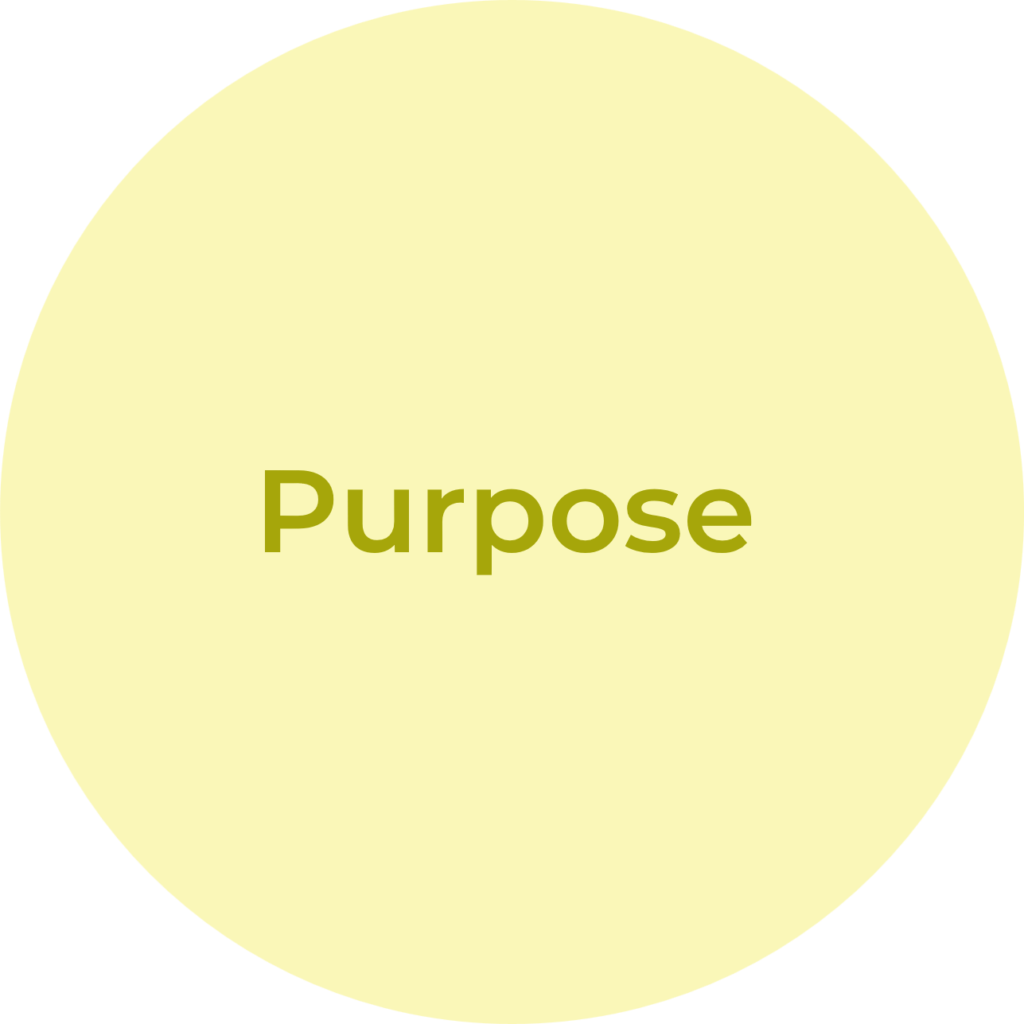Finding purpose, especially a meaningful purpose, gives you a reason to get up in the morning. And it can give you motivation to accomplish something important to you.
 But finding purpose is a lot more valuable than just getting up in the morning. A study published in the Journal of the American Medical Association (JAMA) by researchers from the University of Michigan found a link between having a life purpose and longevity. The study included 6,985 adults over the age of 50. Each participant rated a series of statements based on University of Wisconsin researcher and professor Carol Ryff’s psychological well-being model.
But finding purpose is a lot more valuable than just getting up in the morning. A study published in the Journal of the American Medical Association (JAMA) by researchers from the University of Michigan found a link between having a life purpose and longevity. The study included 6,985 adults over the age of 50. Each participant rated a series of statements based on University of Wisconsin researcher and professor Carol Ryff’s psychological well-being model.
The study showed that people who scored well (meaning they had a significant life purpose) enjoyed protection against all-cause mortality. In other words, people with a life purpose lived longer. The results were independent of gender and ethnicity.
And it wasn’t just all-cause mortality that limited the lives of those without much purpose. Surprisingly to me, the researchers found that those who didn’t have much purpose were more likely to die from heart and blood conditions.
The Ryff Psychological Well-Being Model: How It Relates to Finding Purpose
So, what is the Ryff Psychological Well-Being model? The premise here is that having a meaningful life purpose equates to psychological well-being. Stick with me on this, and you’ll quickly see how this works.
Professor Ryff’s model encompasses six areas that lead to well-being. Let’s go through those.
Purpose in Life
Finding purpose in your life means that you have a sense of direction. You also feel that there is meaning to your past and present life, you hold beliefs that give your life purpose, and you have objectives for living.
The keys for me in this description are the sense of direction and objectives for living. Do you know someone who seems to wander through life without much direction? Unfortunately, I do. They generally aren’t happy folks, and it makes me sad to watch them. They’re stuck in a rut all the time. Eeyore, the pessimistic, gloomy, chronically depressed, and low-energy donkey friend of Winnie the Pooh comes to mind. I can’t imagine anyone wanting to be like Eeyore, but some of us seem to be stuck in that mode.
I prefer the alternative – excitement to get up in the morning and start working on whatever gives meaning to my life, high energy, and optimism. If I notice I’m being an Eeyore, I focus on determining why and then work on getting out of that mode – and working on a significant purpose helps.
Positive Relations with Others
Positive relationships with others are characterized by warm and satisfying relations. You are concerned about the welfare of others. And you offer strong empathy towards others when they need it. This requires, generally, a substantial amount of give and take.
 I’m using the relationship between my partner and me as an example. Most of the time we agree on things — the color to paint a wall, or what programs we’re going to financially support.
I’m using the relationship between my partner and me as an example. Most of the time we agree on things — the color to paint a wall, or what programs we’re going to financially support.
But sometimes we don’t agree. Instead of arguing about it, we work very hard to understand each other’s point of view. And this takes a lot of effort. It seems a lot easier to just keep arguing your point of view (think political rivals – they don’t have a positive relationship with each other).
We weren’t this way at the beginning of our marriage. The phrase “my way or the highway” comes to mind (and it wasn’t just one of us). And that doesn’t represent a positive relationship between the two of us. Fortunately, we decided to practice the give-and-take approach until it became second nature. And it turns out that’s a lot more enjoyable.
Environmental Mastery
This one seems a little strange on the surface. But after digging into it, I can make sense of it now. It’s based on making effective use of what’s around you.
I’ve fallen into the trap of “the grass is always greener on the other side of the fence” several times in my life. And it never is. Now, I strive to enjoy and make effective use of what’s available to me. I don’t fret over what I don’t have. Because there are a lot of things I don’t have, it would be a 24/7 job fretting over and wishing I had those things.
An example of this is our move from Chicago to Madison, WI. We had a lot of things available to us in Chicago – shopping, walkability, restaurants, the arts, our neighborhood block with fantastic neighbors. But we wanted to be closer to our daughter.
We attempted to replicate what we had in Chicago. But that was impossible. Finally, we realized we needed to embrace what Madison had to offer and not obsess over the things that weren’t available. Once we came to that realization, we found a house and haven’t looked back. Instead of an urban/city lifestyle, we now have a more rural lifestyle. We still have walkability, and there aren’t as many restaurants.
We embraced that environment.
Personal Growth
Are you open to new experiences? New experiences take growing and expanding our thought processes. And that takes learning. Not only is learning good for our well-being, but it keeps our minds sharp and our brains healthy.
You can find new experiences all over the place. If you’re working, ask for new assignments, or agree to solve a nagging problem. If you’re part of the retired group, there are endless opportunities in your local community. Take a course at your senior center, learn to play the guitar or piano, or learn a foreign language.
I learned a new programming language to manage our house (I love doing that, although it drives my partner nuts at times). I decided to become a personal trainer certified by NASM, which took a lot of studying and learning. I’ve added to that and am now figuring out what my next learning adventure will be.
If you find your “learning” centers around Judge Judy or Jeopardy, then you are in a rut – step out of that rut and actually learn a new skill.
Autonomy
Autonomy means that you are self-determining and independent. You resist social pressures to think and act in specific ways. And you evaluate yourself by personal standards that you set, not someone else.
This is a tough one today. It seems we are encouraged to act and behave in specific ways that may, at times, be contrary to our beliefs. And that can go against our life purpose. But it’s important to be yourself, not the person someone else thinks you should be.
As a young adult, I always tried to “fit in.” That caused a lot of stress in my life because I was always trying to figure out who I needed to be to satisfy others. Instead, I should have focused on figuring out who I was, and then learned to be a contributing member of society as that person.
As I aged, I did learn that. And in the process, I learned some valuable lessons about life.
Self-Acceptance
Self-acceptance is somewhat related to autonomy. Being self-accepting means that you have a positive attitude towards yourself. You acknowledge and accept the multiple good and bad aspects of yourself and feel positive about your past life.
Have you ever had someone ask you what you would change about your life if you could? Would you have gone to college or a different college, entered a different career, or married a different person? I can honestly say, I wouldn’t change a thing. I’m the culmination of all the things that have happened to me in life. If I changed one thing, then I wouldn’t be the person I am today.
We have family members who seem to constantly lament about the things they didn’t have growing up. Or how their parents should have been better. The reality is we can always be better, and our parents could have been better. But I’d rather think about the positive things – my dad took a week of vacation every year to work with my sister and me at the county 4H fair, and my mom gave me piano lessons (which, if I had one regret, it’s that I didn’t take more advantage of).
I’m sure there are less optimistic sides to the relationship between me and my parents, but why focus on those? I’d rather focus on the positives. No one is perfect.
My life experiences made me a physically active person, optimistic about my past and future life, a supportive parent of two daughters and their husbands, a dedicated and respectful partner to my wife, an inspiring mentor to those in need, and an optimistic and engaged neighbor.
So, What Is a Life Purpose?
At this point, you’ve probably noticed that I’ve equated psychological well-being to life purpose. The definition I’m adopting for life purpose is based on Ryff’s psychological well-being model and a definition of purpose offered by Eric Kim, a research scientist at the Harvard T.H. Chan School of Public Health. The definition of purpose we’re using here is:
“Extent to which you experience your life as being directed and motivated by valued life goals”
Elements of Finding Purpose
We can see that this definition has a few parts to it and has common elements with Ryff’s well-being model. Let’s break it down into three parts: Valued Life Goals, Extent, and Directed/Motivated.
Valued Life Goals
Many of us have developed goals at some time or another. Are they valued life goals? That remains to be seen. For example, a popular goal, or resolution, moving into a new year is to “lose weight.” I’m not sure that qualifies as a valued life goal. If the goal was something that nurtures my body, like “change my lifestyle so that I eat more nutritiously” or “change my lifestyle to get at least the recommended 150 minutes of moderate-intensity exercise each week,” I could get behind it. And of course, losing weight will come with that.
What are some good, valued life goals? I have some excellent real-life examples below, but for now, here are a few:
- Prioritize spending quality time with family and friends.
- Volunteer for a community cause that makes you feel helpful.
- Help others, which is a hallmark of a meaningful purpose. Serve meals at Thanksgiving, deliver meals with Meals on Wheels, or volunteer at your local food pantry.
- Learn a new skill, such as computer programming or a language. Learning has also been proven to maintain a healthy brain.
- About any meaningful hobby or recreational activity. These have the added benefit of learning something new or spending social time with a group at the pickleball courts. In my partner’s case, joining a weaving gild and learning how to weave makes you learn and enjoy social activities with the other weavers.
Extent (to Which You Experience)
You must experience your life while finding purpose. Think back to the classical New Year goal to “lose weight.” Just after New Year’s Day, people flock to join gyms and fitness centers in droves. If you are a regular gym-goer, you notice an increase in the number of people just after the first of the year. But then, after a month or less, the number of people returns to normal, and it’s back to regulars.
The weight loss goal crowd didn’t have much extent. They tried and then quit. They weren’t invested in a lifestyle change that could, if they were consistent, lead to a healthy lifestyle and, ultimately, their goal of losing weight.
The extent of your purpose needs to be long-lasting. It doesn’t have to be a lifetime purpose, but it should last longer than a few weeks.
Example: at 50, I was overweight – way overweight. My doctor got my attention (with a little fear added in for good measure), and I realized I needed to change my lifestyle. Otherwise, I was not going to be happy with the second half of my life (think walkers and other mobility aids).
While I had purposes to advance my career and spend time with my family, my wife had another purpose in mind – to keep her partner and husband around and mobile into our old age. She signed us up for a gym.
This is starting to sound like the New Year weight loss crowd, but my goal was different. My purpose was to be able to walk my daughters down the aisle at their weddings, lower my cholesterol and blood pressure to improve my cardiovascular health, and be active well into my later years.
I needed to lean into it and live this purpose every day, not just a few weeks in January.
Directed and Motivated by Purpose
Finding purpose means you now have a compass to set your priorities every day. If you wake up each morning and prioritize activities that are related to your life purpose, then you are being directed and motivated by that purpose.
 And here, again, is that problem with losing weight at the beginning of the year. Most don’t even like exercise, but they’ve convinced themselves that’s the path to losing weight. But losing weight takes longer than most expect, and most of it happens in the kitchen. They don’t see significant results in a few days. Then, they lose motivation and then they stop because losing weight is somewhat of a vain purpose.
And here, again, is that problem with losing weight at the beginning of the year. Most don’t even like exercise, but they’ve convinced themselves that’s the path to losing weight. But losing weight takes longer than most expect, and most of it happens in the kitchen. They don’t see significant results in a few days. Then, they lose motivation and then they stop because losing weight is somewhat of a vain purpose.
But, again, if they found purpose to live a healthier lifestyle for longevity, then they’d be in it for the long haul. That’s what I had to do – think more about my lifestyle and not just go to the gym for an hour a few times a week.
Switching gears a bit, finding purpose that revolves around building and strengthening relationships with family and friends reaps rewards that you can see almost immediately. Harvard Health reports that people who have social relationships with friends and family are happier. Plus, they have fewer health problems and live longer. I have leaned into that the last few years, and it has been very rewarding for my well-being.
An example of how I’ve done that is I call my 87-year-old mom every Sunday (sometimes more often). We have wonderful discussions about things going on in her life. I cherish that phone call and won’t skip it for anything. We talk about my childhood because I don’t remember all the details. We talk about the music jam she hosts every Saturday night, which is her life purpose now. My purpose is to forge an even stronger relationship with my mom. And that purpose directs me and motivates me to prioritize that call every Sunday morning.
How Do You Go About Finding Purpose?
The simple answer is identifying what inspires and excites you to get out of bed in the morning. Some may find a job and career exciting, but others may find a job to be, well, a job and not an inspirational purpose.
Once you identify one or more activities that will give your life purpose, you then must be willing to prioritize these each day. For example, if a purpose turns out to be mentoring high school students in math, then you have to consistently prioritize that activity.
A purpose doesn’t have to focus on others (although that might make it more rewarding to you). Your purpose can be to live as healthy a life as possible with fitness and nutrition taking a front seat. Just don’t be like the troves of New Year goal-setters that fall by the wayside after a short time.
Start Finding Purpose By:
- Make a list of what’s important to you. These might be helping others succeed in a sport or school, maintaining or improving your health, developing a closer relationship with family members, or developing social relationships with friends and neighbors.
- Select the top one. You can go back to the others later. Now is the time to rewrite it so that it is specific. For example, a health-related purpose can be: My purpose is to be as healthy as possible by focusing on fitness and nutrition.
- Write down why this purpose is important to you – not anyone else, just you. If you can’t figure out why it’s important, then it’s probably the wrong purpose for you.
- This is where the rubber meets the road – develop a list of actions you will do today, tomorrow, next week, and next month to live your purpose. Sticking with the healthy living purpose, today you might go to your kitchen and throw away all the cookies and potato chips. Tomorrow, you will join a gym (and plan to exercise while you’re there). Then over the next week and month, you might learn how to prepare healthy meals.
- Prioritize these purpose-driven actions every day. If you don’t, well, you’ll end up like the New Year short-lived fitness group.
- Finally, every month, check in with yourself on how you’re living your purpose. You may need to make some adjustments, and that’s okay.
Real-Life Examples (I’ll Add to These as I come Across Them)
There’s nothing like some real-life examples to get you started on finding purpose. The three examples are diverse, ranging from healthy living to building houses for others. Don’t feel shy about adopting one as your own. And then don’t hesitate to change it to fit you.
I started with my current life purpose. After all, if I don’t have one, then I shouldn’t be telling you to develop one!
My Healthy Purpose
I’ll start with me. I retired from my corporate job in early 2020 with several purpose-driven plans. I planned to return to the Tae Kwon Do Nationals and win two gold medals, mentor high schoolers in math and science, and teach Tae Kwon Do to youngsters. Several meaningful life purposes are on that list.
Then the pandemic hit, and all those plans were out the window when we were locked down. So, what to do? With nothing on the calendar, I started thinking about what excited me. I settled on fitness and understanding how our bodies adapt to exercise. I knew a little about fitness, but not enough. So that became my purpose: to become a fitness expert.
To live that purpose, I realized I needed education. So, I enrolled in the Certified Personal Trainer course offered by NASM. I completed that course and the certification exam.
After the pandemic settled down, I trained high school soccer kids to perform better at their sport. I developed training programs for friends and family members who asked. I continued with additional courses in Performance Enhancement Specialties to become even better at training others. And now I’m sharing this information with you.
What makes this a very satisfying purpose for me is that I never charge a dime to train people. And I never will. I recently discovered a local charity organization that offers youth multisport events and wellness-based after-school programs. I’m planning to volunteer in that organization in 2024.
Creating a Safe Environment for Musicians to Perform
Several years ago, a small building became available in a small town in northern Indiana. A woman, let’s call her Bobbe, explored the idea of using the space to give local musicians a safe place to showcase their music.
After a year or two, Bobbe’s Saturday night music sessions were attended not only by local musical groups but local (and not so local) people who wanted to listen to the musical groups. She quickly outgrew the small space.
She found another space a few blocks away and moved the sessions to that new larger space, built a stage and decorated the walls with musical decorations, and started a Facebook page. Up until 1 or 2 am, she posts the Saturday night performances by Sunday morning because she wants the performers to see them.
Her purpose is to give aspiring musicians a place to practice their trade. She doesn’t charge a dime and offers food and snacks on Saturday nights at her own expense. She lives her purpose most days of the week.
But the best part is that she just turned 87 and is going strong. And the even better part for me is that she is my mom. She makes calendars with photos of the performers. People come from counties and states away to perform or listen. It’s amazing what she built purely out of her love for music (she’s an accomplished piano player and has learned to play the guitar). At this point, she leads her own musical group that practices every Wednesday afternoon.
She lives her purpose like no other I’ve seen, a purpose that was born purely from her love of music and respect for musicians.
Jimmy Carter, Former U.S. President Driven to Provide Affordable Housing
People’s opinions on Mr. Carter as a president are mixed, but I haven’t found anyone who doesn’t respect his directed purpose to help provide people with affordable housing after he left the White House. He and his wife, Rosalynn, worked tirelessly after exiting the White House with Habitat for Humanity. If you don’t know, Habitat for Humanity is a volunteer organization that helps people build affordable housing.
Mr. and Mrs. Carter started the Carter Work Project to help provide affordable housing to those in need. They not only fundraised and directed, but they worked on construction sites swinging hammers to build affordable housing. And they weren’t youngsters at that point in their lives. In fact, Jimmy was on a site as recently as 2019 in Nashville, TN at the age of 95. I hope I can still swing the hammer when I’m 95!
As with the other two examples, the Carters’ purpose was driven by valued life goals (help people in need have affordable housing), they persisted at it by fundraising and swinging hammers on construction sites for decades, and they were motivated by pursuing this purpose most days of the week (at least after leaving the White House). It’s difficult to find another former president who selflessly did so much for people who needed a little help in life.
Wrap-Up
As the research cited on this page shows, finding a meaningful purpose in life provides you with several benefits. For starters, you’re a happier, more optimistic person. And your health (both mental and physical) benefits from having a purpose in life.
Conversely, if you don’t have a purpose, then you tend to wander through life trying to figure out what you’re supposed to do. If you find yourself in this boat, I strongly recommend just picking a purpose that enters your head and giving it a shot for a few weeks. Maybe it’s something as simple as picking up the phone and reconnecting with a long-lost relative or friend. Or just go for a walk with a friend most days of the week and learn a little more about each other. There’s no perfect life purpose. But many are very close – and if you find a purpose that benefits others, then that’s even better.
The Ryff Psychological Well-Being model is worth thinking about. How do you rate yourself in each of the six categories? Maybe you’d like to be better in one or two of them. Find a life purpose to do just that – invite a neighbor for coffee to develop positive relations with others. Or if you have trouble accepting yourself, lay out a plan that will help you learn to accept yourself – and don’t hesitate to ask for professional help if you find yourself blaming your past on everything that goes wrong in your life.
You can make a positive impact on the world – and all you have to do is start today.


 Hi, I’m Kirby Chapman, the creator behind The Healthy League. You can read about
Hi, I’m Kirby Chapman, the creator behind The Healthy League. You can read about